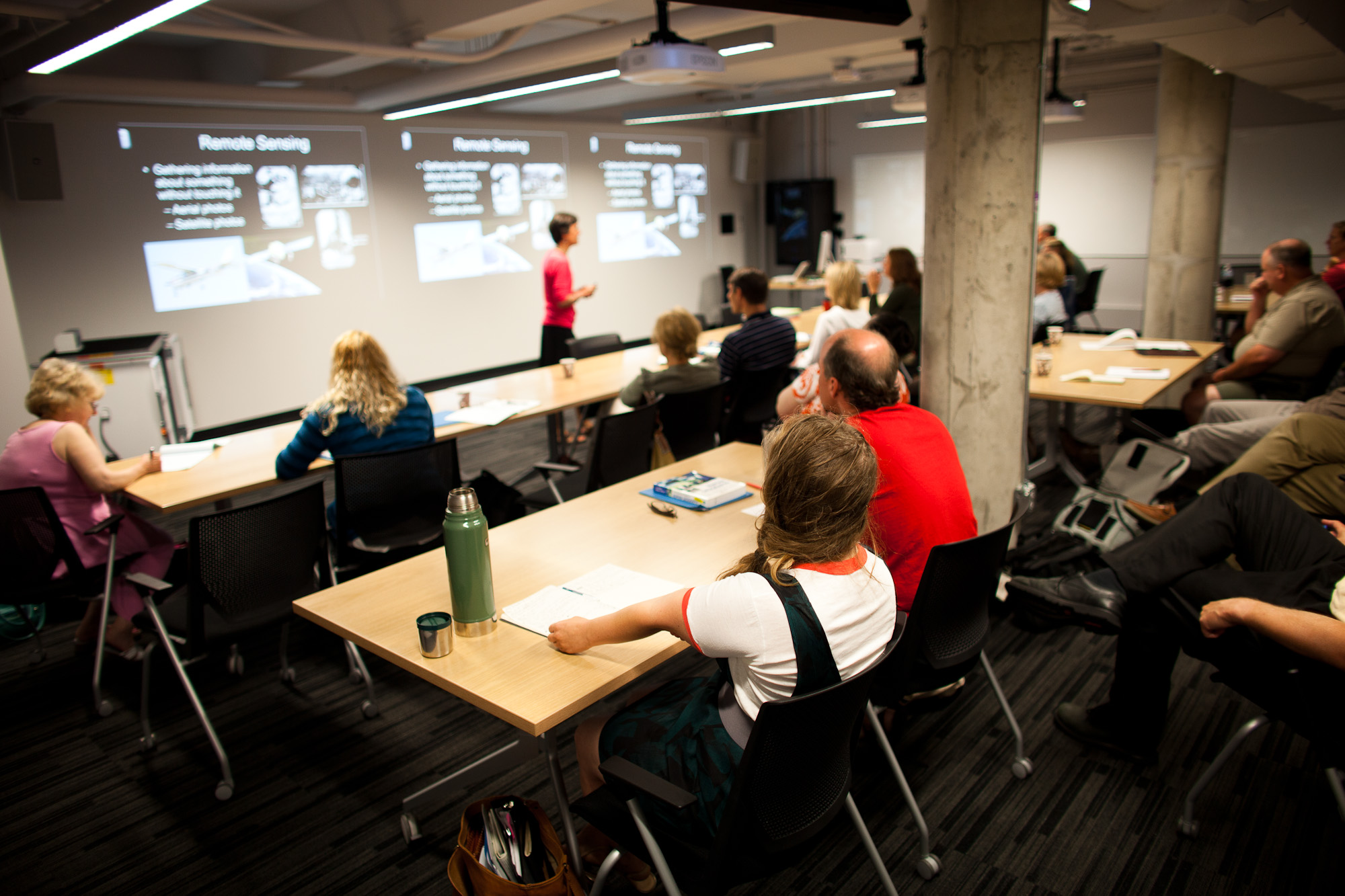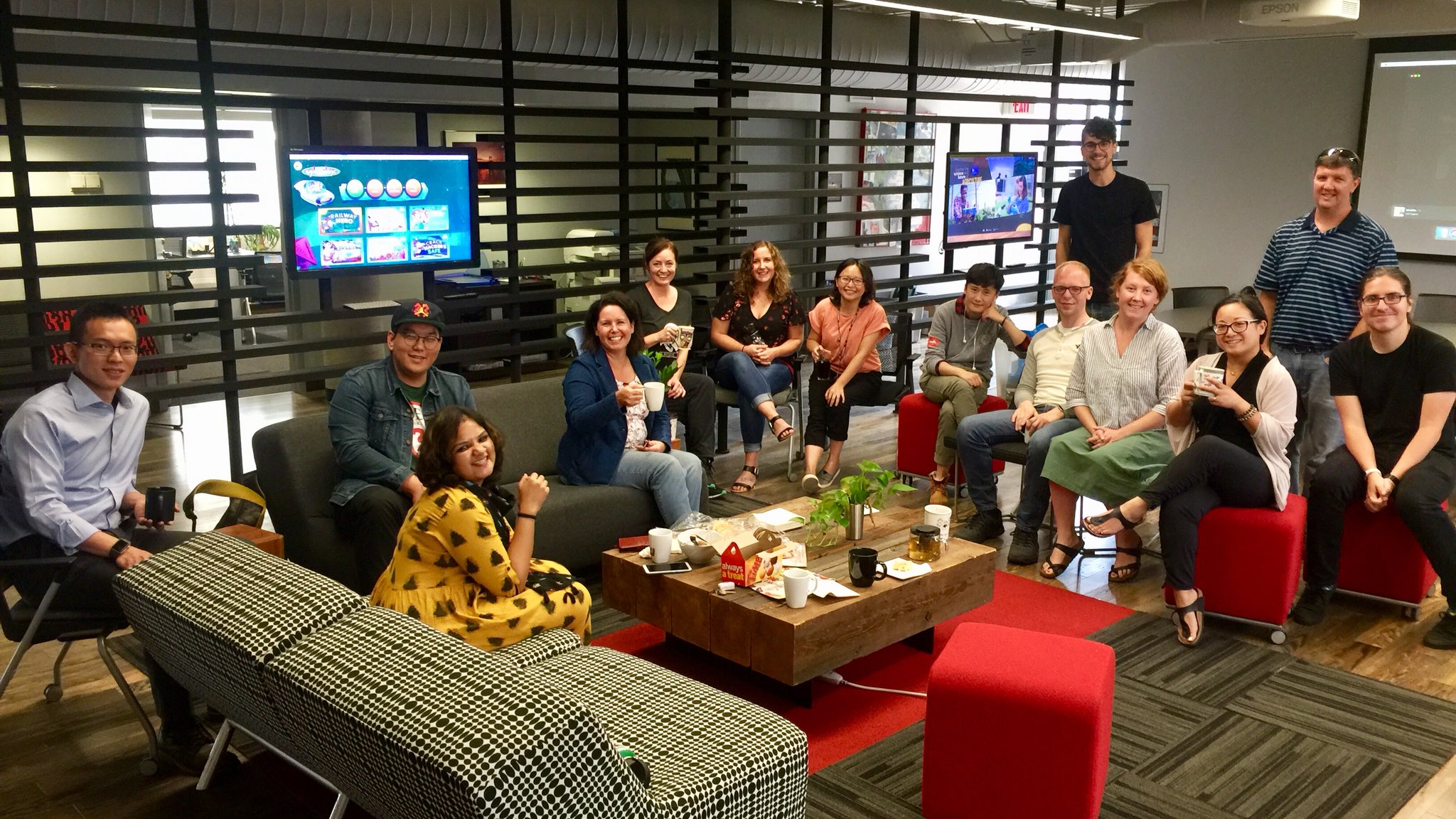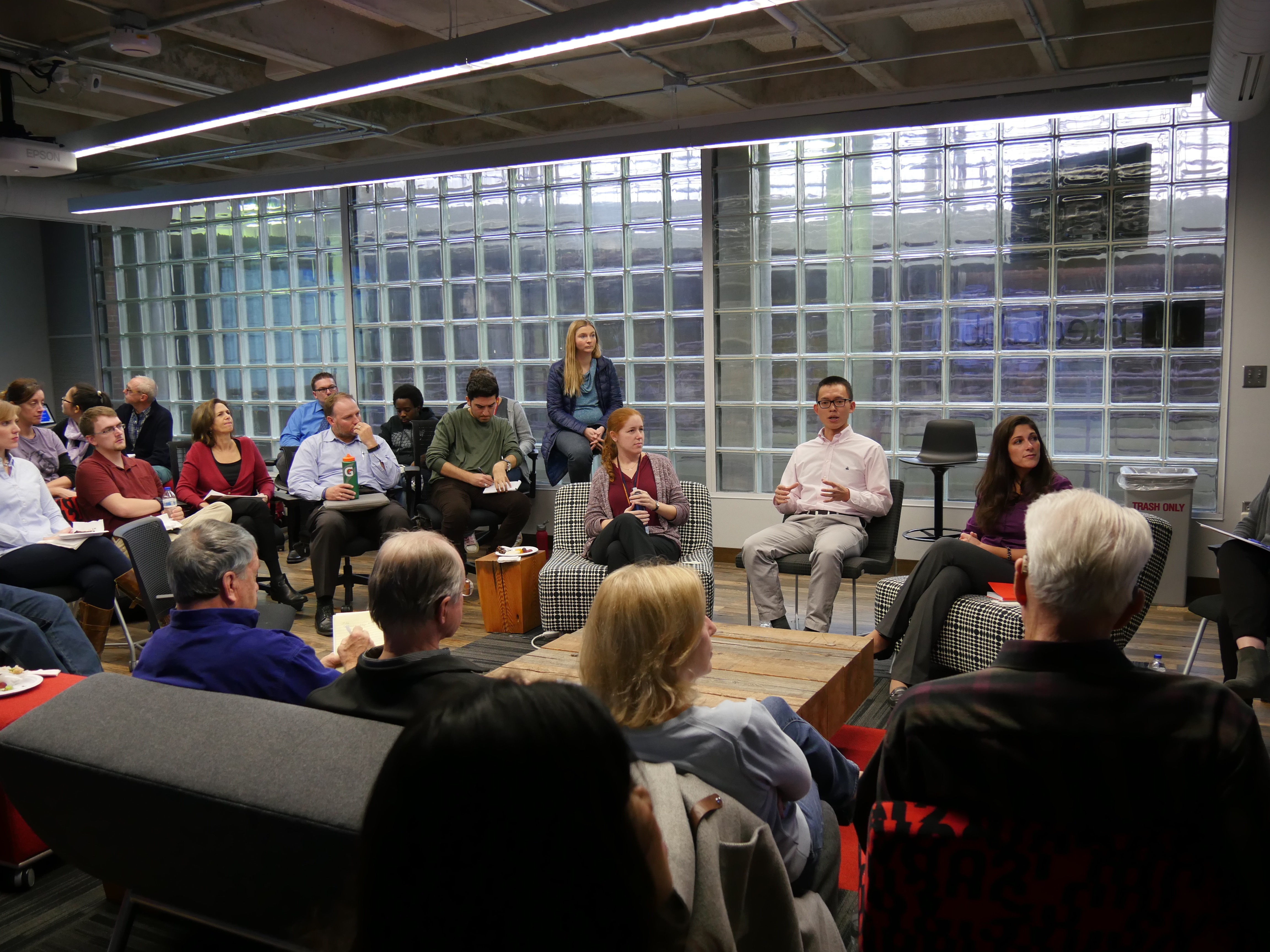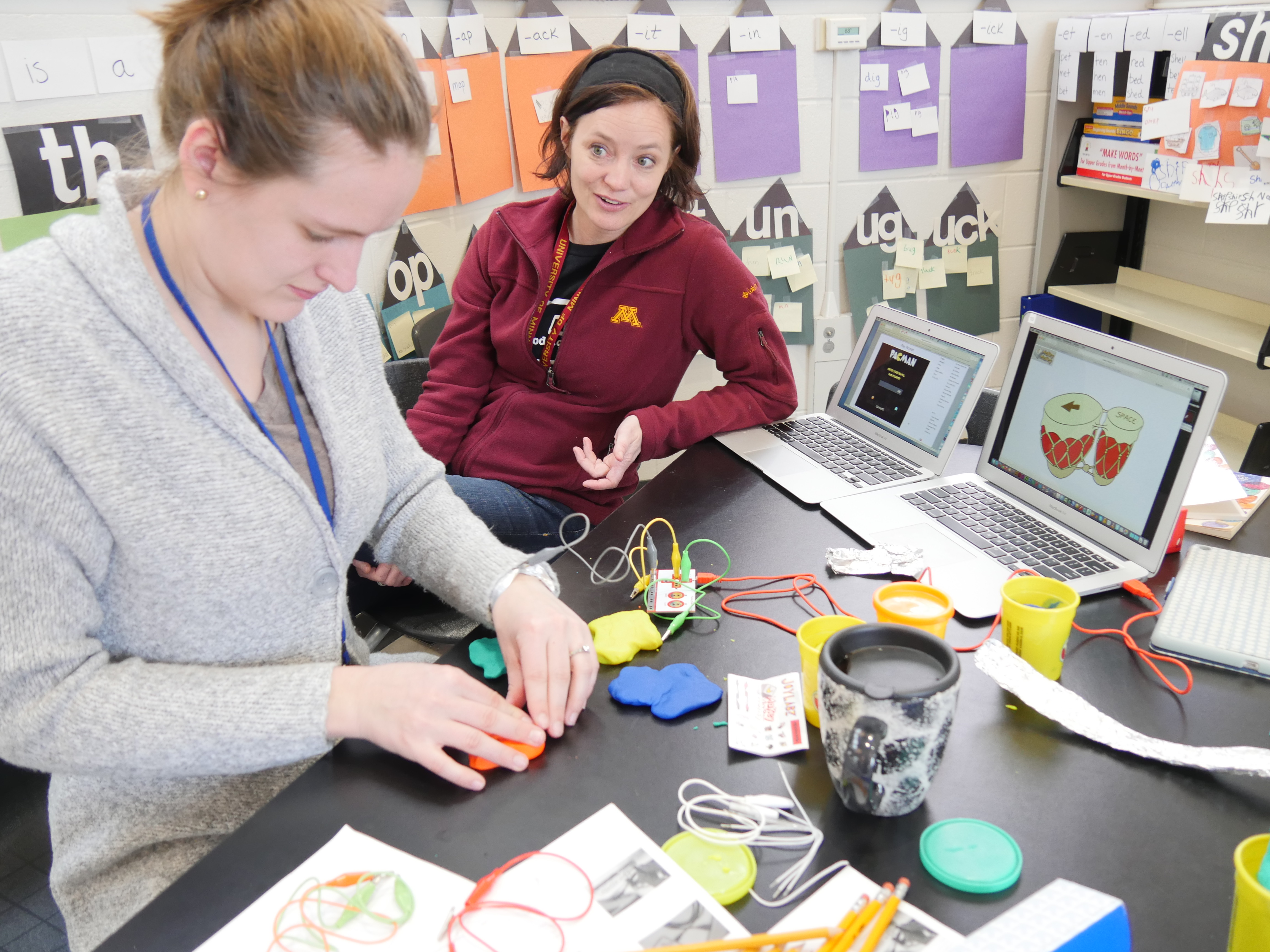May 19, 2016
Suzan Koseoglu and Jeni Henrickson both successfully defended their dissertations last week. Congrats to these two new PhDs in Learning Technologies / Curriculum and Instruction!
Dr. Koseoglu was advised by Cassie Scharber, and her dissertation was titled, "Third Learning Spaces in Open Online Courses: Findings from an Interpretive Case Study.”
Dr. Henrickson was advised by Aaron Doering, and her dissertation was titled, "Adventure, Inquiry, and Technology as Driving Forces in Sustainability Education.”
View Suzan and Jeni's dissertation abstracts below.

Third Learning Spaces in Open Online Courses: Findings from an Interpretive Case Study
Suzan Koseoglu
In this case study, I present an interpretive exploration of five open participants' learning experiences in a massive open online course (MOOC), which was offered by a higher education institute in the United States as a general education course in research writing. There were two types of enrollment in the course: formal (students who enrolled in the course for credit, six sections) and informal (open participants). Open participants had access to the public activities of the learning community, but they did not receive any academic certification, evaluation, or grading from the instructors.
Blogging was central to all educational activity in the course. In this study, participant blogs are conceptualized as social spaces created by a multitude of interactions (e.g., with content, instructors, other learners, the imagined audience). These spaces were the starting point for the researcher to examine five open participants’ learning activities in the course. Primary data sources were participant blogs, semi-structured interviews, and a case study journal with analytic reflections. Secondary data sources included participant observations, course documents and artifacts (e.g. the syllabus, course videos), and the course Twitter feed. Thematic analysis of data illustrates how open participants participated in the course in multifaceted and unique ways and created third spaces of learning—spaces that are neither informal or formal and that create opportunities for learning to occur in emergent and authentic ways (Cronin, 2014; Gutierrez, Rymes, & Larson, 1995). These spaces were possible because learners' informal identities, skills, and networks were welcomed into formal learning and capitalized on as important learning resources.
I present three typologies that point to the self-directed and authentic nature of open participation within those spaces: (1) open participants created unique course histories through their blogs, (2) open participants did not follow the formal learning path, (3) instances of meaningful learning were visible at different times in the course and beyond. These findings led me to strongly align with scholars who suggest that the traditional markers of success in formal education (e.g., sustained engagement, course completion, directly measurable outcome) are insufficient to frame participants’ involvement in open online courses. The diversity in learner goals and roles calls for a need to shift the focus of open online courses from the end product to the learning process and challenges formal narratives of success and failure in open online courses.
I particularly highlight the contextual and shifting nature of openness and argue that it is crucial for learners to be aware of and develop open literacies, which I define as the skills and attitudes needed for successfully navigating and participating in open online spaces. The three design principles I offer—(1) give voice to the authentic self, (2) recognize the contextual nature of openness, and (3) be cognizant of multiple layers of digital literacies, such as open and networked literacies—might be of interest to anyone interested in designing open online courses as spaces for individual and collective dialogue.

Adventure, Inquiry, and Technology as Driving Forces in Sustainability Education
Jeni Henrickson
Education for Sustainable Development (ESD) has increasingly taken on importance around the world, in part due to the growing awareness of environmental concerns such as climate change, and in part due to a challenge set forth by the United Nations Decade of Education for Sustainable Development (2005-2014) to integrate the principles, values, and practices of sustainable development into all aspects of education and learning. There is, as a result, a growing body of ESD literature (e.g., see Blum, Nazir, Breiting, Goh, & Pedretti, 2013; Chalkey, 2006; De Hann, Bormann, & Leicht, 2010; Eilam & Trop, 2011; Green & Somerville, 2014; Karatzoglou, 2013; Kemmis & Mutton, 2012; Reunamo & Pipere, 2011; Rieckmann, 2013; Walshe, 2008; Weaver, 2015), and many places in the developed world have begun to establish policies addressing ESD.
Adventure has been incorporated into sustainability education in a variety of ways throughout history: through literature, outdoor and physical education, field-based exploration and research, and most recently, technology, which has, for example, allowed learners to journey virtually along with explorers and scientists on expeditions to the far-reaches of the world. Technology has also enhanced and expanded the types of adventures we can engage in today, such as through advances in equipment and tools that allow us to explore regions of the planet that were previously inaccessible, and to participate in events previously unimagined, via the personal computer, the Internet, and mobile devices.
The three related studies that comprise this dissertation focus on the use of adventure learning as a driving force in inquiry-based sustainability education. These studies examine three different online adventure learning projects. Paper 1 shares research conducted on the role of adventure in the GoNorth! adventure learning series, and advance suggestions for how adventure might be employed in distance, online, and mobile learning in ways that promote experiential learning and sustainability education. Paper 2 examines to what extent an informal online learning environment such as WeExplore might provide a technology-fueled classroom tool for teachers that fosters inquiry and creativity while allowing learners to design authentic transdisciplinary experiences grounded in contemporary issues. Paper 3 shares data and narratives from six Earthducation field expeditions and examines how education might influence sustainability in differing contexts and geographical locations.
Findings from the studies indicate adventure learning is a promising model that educators and designers can draw from in both formal and informal learning settings as a means to fuse inquiry, sustainability education, and technology in a pedagogically meaningful way that engages learners and teachers alike. The studies advance our understanding of how we might better design technology-enhanced learning environments that foster engagement and creativity while encouraging learner curiosity and wonder and cultivating inquiry and collaboration.



